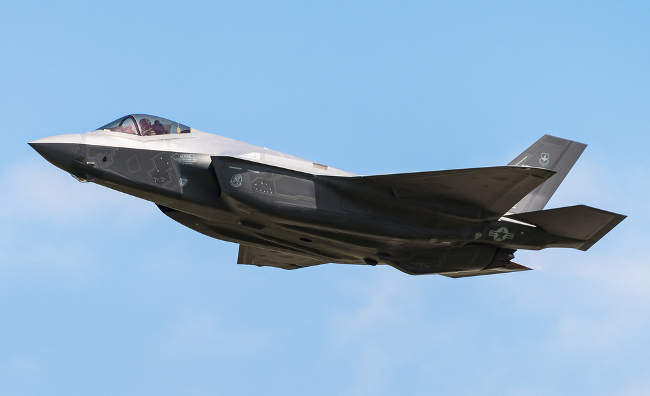
Has there been a weapons system more argued over than the F-35 Joint Strike Fighter? The ridiculously advanced fighter jet, developed by Lockheed Martin, has been in the works for a decade, and has spent more time as a political football than it has in the air. Trump has been an enthusiastic critic of the JSF, and that’s now taken a strange turn, with the revelation Trump had a rival CEO on the line when he called the Pentagon about the fighter jet.
The F-35’s costs have been an issue since well before Trump ran for office. In 2015 it was estimated that lifetime costs of the JSF will be $1.5 trillion, and when it was first launched in 2006, the Government Accountability Office warned that it would run into cost overruns and delays since flight testing and production were on a sped-up timeline. By 2012 prices were up to $300 million a plane.
Trump is far from alone in his criticism of this, of course, and has been talking about how to handle the F-35 situation as part of his first 100 days. So what, precisely, does Boeing’s CEO have to do with all this? Nothing, but he was involved anyway, according to Congressional testimony:
The reason Boeing was on the call, [Lieutenant General Chris] Bogdan said, was that they were partly discussing the presidential airplane, which Boeing manufactures and Bogdan has no role in. They were also comparing the F-35 with the Boeing-made F/A-18 Super Hornets, “to figure out what that right complementary mix is,” he said.
The fact that the president called Bogdan directly at all represents an extraordinary breach of the chain of command — though the panel’s chairman, Rep. Mike Turner, R-Ohio, Turner noted with a smile that he believes Bogdan would be more than capable of handling the situation.
Bloomberg, which revealed the call, notes that Boeing’s CEO didn’t expect to be on the call, and Bogdan made it clear that he didn’t discuss any proprietary information or reveal any corporate secrets. Still, one can’t imagine Lockheed Martin is terribly excited the CEO of a direct competitor was there listening to discussions about their product. And it’s unusual, to put it mildly, that the President would directly contact an officer at the Pentagon instead of speaking to the Defense Secretary about the issue. One can argue Trump is used to contacting people directly, instead of via proxies, but hopefully in the future he considers not just protocol, but also his audience.
(Via The Dallas Morning News)
